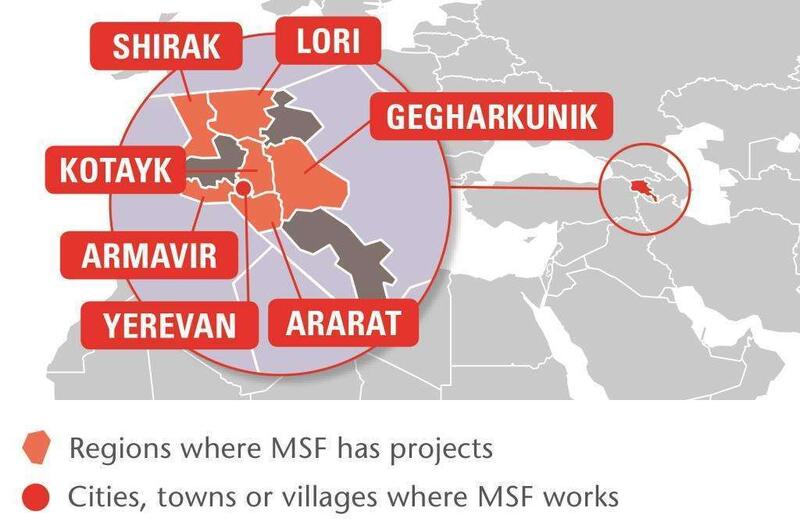Situated on the ‘silk road’ route, Armenia is a country with a rich cultural heritage and was the first country to formally adopt Christianity in the early 4th century.

Armenia is a landlocked country that became independent from the Soviet Union in 1991. It is bordered by Georgia, Azerbaijan, Iran and Turkey.
It has one of the highest rates of multi-drug resistant tuberculosis (MDR-TB) in the world.
Médecins Sans Frontières/Doctors Without Borders (MSF) first began working in the country following an earthquake in 1988.
MSF’s work in Armenia: 2015
Médecins Sans Frontières/Doctors Without Borders (MSF) works in seven marzes (regions) of Armenia, as well as in prisons.
By the end of December 2015, 226 drug resistant tuberculosis (DR-TB) patients were under treatment in MSF-supported facilities. In November, MSF also supported the Armenian National Tuberculosis Control Centre (NTCC)to re-establish thoracic surgery at the Central Hospital for TB patients.
The treatments currently available for patients with DR-TB are largely unsatisfactory, because of their length, toxicity, complexity and poor effectiveness.
Outcomes are poor for people suffering from MDR-TB and particularly for those suffering from extensively drug-resistant TB (XDR-TB).
Since 2013, MSF has been helping the Armenian health ministry to introduce two new TB drugs, bedaquiline and delamanid, and between April 2013 and December 2015, 81 MDR-TB and XDR-TB patients were started on these.
As the NTCC increases its capacity, MSF is shifting its focus away from support for ‘conventional’ MDR-TB treatments and towards the management of MDR-TB and XDR-TB patients receiving new TB drugs. This is part of the UNITAID-funded endTB partnership.
Find out more in our 2015 International Activity Report



